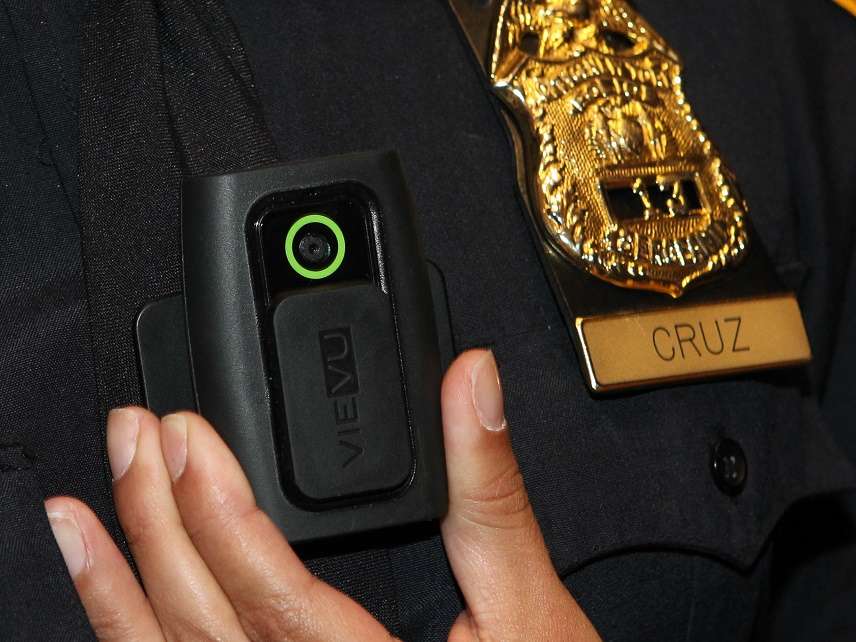NYC Police Union Argues Releasing Body Cam Footage Violates Cops' Civil Rights
Suing to prevent such releases.

New York City's largest police union, the Patrolman's Benevolent Association, is suing Mayor Bill de Blasio, Police Commissioner James O'Neill, and the New York Police Department (NYPD) to block the release of body cam footage, arguing that it violates their members' civil rights.
The union points to a New York statute, Civil Rights Law Section 50-a, that declares "all personnel records used to evaluate performance toward continued employment or promotion" must be "confidential and not subject to inspection or review," permitting their release only with the consent of the police officer or a court order. According to the union, body camera footage should be considered such personnel records.
The provision is one of those laws that create an environment that privileges the sustained employment of police officers over any kind of substantive accountability or transparency.
New York passed Section 50-a in 1976 "to prevent criminal defense lawyers from using 'unsubstantiated and irrelevant' allegations to undermine officers' credibility in criminal cases," Yale Law's Case Disclosed explains. Since then, "New York courts have systematically expanded the coverage of the provision." Lawyers for the city have happily exploited this expansion, arguing that grievances filed by city inmates, transcripts of open disciplinary hearings, and reports about shootings should all be considered "personnel records."
"This footage has serious implications not only for the safety and due process rights of police officers, but for the privacy and rights of members of the public, as well," union chief Patrick Lynch said in a statement. "The mayor and the NYPD have shown a reckless disregard for these concerns by circumventing the existing process set up by the State Legislature and selectively releasing portions of videos to suit their own interests."
It's important to remember: The release of body camera footage alone is not sufficient to guarantee any change or improvement. It's a modicum of transparency that can help generate the kind of pressure than can break through the powerful status quo maintained by the police union and its confederates in government. And apparently it's too much for Lynch.


Show Comments (19)